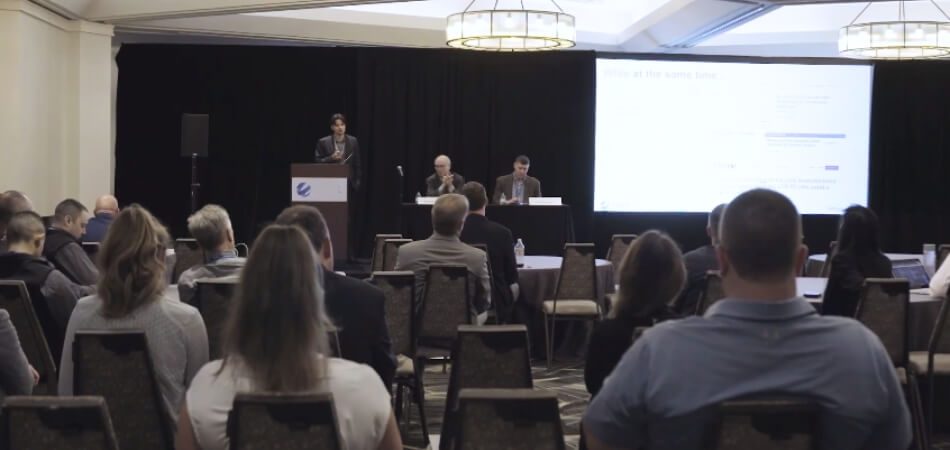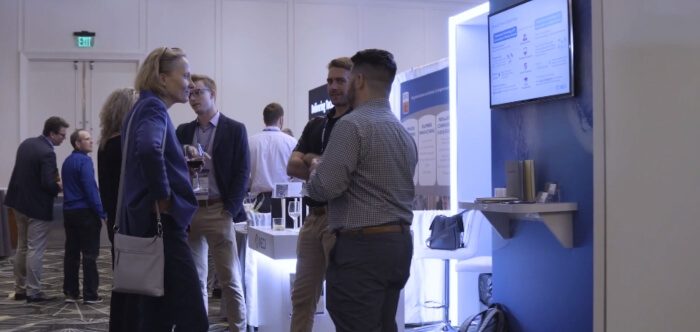It takes a commitment to continuous learning and interdisciplinary collaboration to navigate the intricate world of medicine and healthcare. As advances in biomedicine reshape our understanding and treatment approaches, there’s a growing need for platforms where knowledge, experiences, and insights can converge.
One such platform is the highly anticipated Biomedical Conference, an event that promises a wealth of information, networking, and learning opportunities. Now, you might wonder, who should attend the biomedical conference?
It encompasses a broad range of professionals: healthcare workers, researchers, industry experts, and medical enthusiasts, all of whom seek to stay abreast of cutting-edge developments.
Their participation not only enhances individual expertise but also fosters collaborations that could be pivotal for future breakthroughs. Thus, this conference stands as an invaluable resource for professionals eager to propel the medical field forward
A Quick Oversight on the Biomedical Conference
The Biomedical Conference emerges as a nexus for groundbreaking dialogue and discovery. This event garners global experts from various medical sectors. It’s a beacon for innovation, learning, and networking.
Harnessing diverse perspectives, the conference addresses current biomedical challenges. Discussions range from molecular breakthroughs to large-scale healthcare solutions. Participants leave enriched, carrying forward the collective wisdom.
Shaping the future, attendees’ collaborative efforts spark revolutionary ideas. This synergy not only accelerates individual careers but also advances global healthcare. Ultimately, the conference stands as a monumental congregation for biomedical progress.
Types of Biomedical Conferences
Biomedical conferences bridge gaps between theory and practice, fostering environments ripe for interdisciplinary collaboration and discovery. These gatherings vary, each tailored to specific facets of the biomedical sphere. Here are the types that help professionals navigate their continual learning journey:
Clinical Advancements Conferences
These forums focus on innovations in patient care. Experts share insights into new therapeutic approaches and treatments. Such gatherings are crucial for clinicians seeking cutting-edge medical applications.
Biomedical Research Symposia
Here, the spotlight is on recent scientific discoveries. Researchers discuss findings, methodologies, and implications for healthcare. These symposia fuel the transformative power of scientific exploration.
Healthcare Technology Conventions
These conventions explore medical technology breakthroughs. They showcase the latest equipment, software, and tech-integrated healthcare solutions. Attendees learn, network, and often collaborate on technology-driven projects.
Public Health and Policy Meetings
These meetings address societal health challenges. Discussions revolve around policy, healthcare access, and preventive strategies. They are vital for professionals influencing public health decision-making.
Pharmaceutical Gatherings
These are crucial for industry professionals. Updates on drug development, trials, and regulatory affairs are common themes. Such conferences blend science with business and regulatory insights.
Biomedical conferences serve as a testament to the ever-expanding realm of human knowledge and innovation, confirming that in the quest for enhancing life quality, learning and collaboration are indispensable. Attending these events, professionals are not just participants, but active contributors to a global knowledge ecosystem.
Who Should Attend the Biomedical Conference?
The Biomedical Conference serves as a melting pot for diverse intellects gravitating towards medical advancement. This congregation isn’t exclusive but rather embraces a spectrum of professionals. Identifying who should partake can outline the conference’s multidimensional benefits.
Healthcare Practitioners
Medical doctors, nurses, and therapists form this attendee category. They directly implement biomedical research findings in clinical settings. Their presence bridges practical healthcare delivery and theoretical advancements, ensuring grounded discussions and applicable outcomes.
Further, these professionals identify clinical challenges, requiring innovative solutions. Their insights help steer research toward practical, patient-centric concerns.
Researchers and Academicians
This group thrives on the exploration of unknown territories. They delve into medical mysteries, seeking comprehensible answers. Their participation is fundamental, providing a foundation of scientific inquiry and knowledge.
Additionally, they benefit from networking, and finding collaboration opportunities. Sharing and receiving feedback, they refine concepts, potentially sparking groundbreaking initiatives.
Industry Experts
These professionals understand the market dynamics. They bring valuable discussions about biomedical product commercialization. Their expertise guides innovations from the lab to market, ensuring sustainability.
Furthermore, they analyze trends, predicting future industry movements. This foresight helps shape research, keeping it relevant and market-responsive.
Policy Makers and Public Health Advocates
Their role in shaping health policies is crucial. Discussions they engage in influence public health initiatives and funding. These dialogues ensure that advancements align with societal needs.
Moreover, they assess the implications of biomedical innovations. Their insights help navigate the ethical, legal, and social aspects intertwined with medical progress.
Medical Students and Enthusiasts
Eager minds ready to absorb and challenge information populate this segment. These conferences provide educational vistas, supplementing academic knowledge.
Their fresh perspectives often bring a new dimension to discussions. Also, these events offer them a glimpse into their future professional world. Networking, they build relationships that could significantly influence their burgeoning careers.
By understanding the roles and contributions of each attendee type, we grasp the conference’s intrinsic value in fostering a collaborative environment. It’s not just a meeting point for today’s minds, but a cradle for tomorrow’s biomedical breakthroughs.
Perks of Attending a Biomedical Conference
Biomedical conferences represent pivotal events in the medical calendar for professionals across the industry. These gatherings aren’t just educational venues but catalysts for industry progression and innovation. Understanding the perks of attending clarifies the buzz surrounding these events.
Exposure to Latest Innovations
Attendees witness groundbreaking biomedical discoveries firsthand. These innovations often set the course for future healthcare trends. This direct exposure keeps professionals at the forefront of fast-evolving medical science.
Networking Opportunities
Conferences serve as networking goldmines, connecting diverse professionals. These interactions often lead to collaborative efforts in research or practice. Building these relationships can significantly propel one’s career forward.
Professional Skill Enhancement
Workshops and seminars focus on skill development and refinement. These sessions are led by seasoned professionals offering deep insights. Such learning experiences are crucial
Direct Interaction With Thought Leaders
Delegates get the chance to meet industry visionaries in person. Engaging with these influencers can spark inspiration and new ideas. These interactions often provide guidance, motivation, and valuable career advice.
Increased Visibility in the Professional Community
Presenting work, whether research or case studies, raises one’s professional profile. It positions delegates as serious contributors to the field. This visibility can open doors to new opportunities and collaborations.
The advantages of attending a biomedical conference are manifold, offering much more than learning opportunities. They are professional hubs that combine knowledge, aspirations, and innovative spirit, contributing to the personal growth of the attendees and the broader progression of the healthcare industry.
Tips to Find the Right Biomedical Conference for You
The world of professional gatherings can be daunting, especially while navigating a field as expansive as biomedicine. With numerous conferences pitched as must-attend, finding the right fit is key. Here are succinct pointers to guide your selection process:
- Identify Your Niche: Reflect on your specialization or interest in biomedicine. Choose conferences aligned with these, ensuring relevance to your work or study.
- Research the Agenda: Investigate the conference’s itinerary beforehand. The listed topics, sessions, and guest speakers should resonate with your professional goals.
- Consider the Format: Assess your preference between in-person or virtual attendance. Each has unique benefits, fitting different comfort levels and learning styles.
- Check Professional Endorsements: Look for events endorsed by reputable institutions or professionals. Such backing often signals a conference’s quality and relevance.
- Evaluate Networking Opportunities: Determine if the event supports your networking needs. Ideal conferences facilitate interactions with peers, industry leaders, and potential collaborators.
- Review Past Events: Explore feedback or published outcomes from previous years. This insight can gauge the conference’s consistency and impact.
- Assess Financial Implications: Consider registration costs, travel expenses, and accommodation. Ensure the event’s benefits justify the investment.
- Location and Accessibility: Reflect on the conference’s location, especially for in-person events. Consider travel convenience, safety, and accessibility from your place.
- Continued Learning Opportunities: Identify if the conference offers resources for prolonged engagement. Access to post-event materials enhances the learning experience.
- Personal Preparation: Contemplate your readiness to engage with the content and participants actively. Optimal benefits require proactive participation, like presenting papers or networking.
Selecting the appropriate biomedical conference necessitates a blend of introspection and research. The right conference can be pivotal, offering opportunities that resonate with your professional journey, enhancing not just knowledge but also providing a platform for visibility and collaboration.
Final Considerations
Understanding the dynamics of the biomedical landscape underscores the importance of targeted professional gatherings. These conferences, pivotal in advancing individual careers and the broader medical field, bring together a diverse cohort.
Answering who should attend the biomedical conference reveals an inclusive spectrum: from practitioners, researchers, and industry mavens to policy influencers and budding professionals. Each participant contributes to and draws from a reservoir of knowledge, innovation, and collaborative spirit, underscoring the event’s holistic value.
Beyond immediate educational merits, these conferences foster a culture of continuous learning and connectivity essential for steering the future of healthcare. Therefore, those invested in biomedical progress must consider these gatherings a fundamental component of their professional journey.








